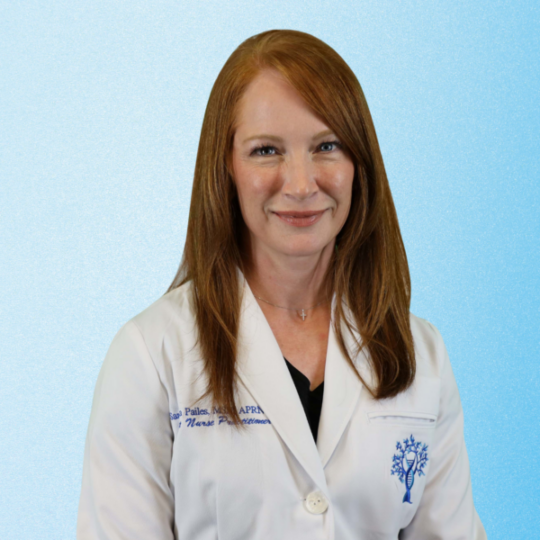Low Testosterone and Andropause Treatments in Dallas Texas
Testosterone is responsible for a number of functions in the male body. When it declines, men may experience changes that drastically decrease their quality of life. Every man is unique, and while hormone decline can occur at any time, most men begin to experience a drastic decline in hormones during the mid forties or early fifties. Bioidentical Hormone Replacement Therapy can replace deficient testosterone with hormones that are identical in structure and function to the ones produced in the human body.
When testosterone declines, it affects all of the other hormone functions and levels because they are all interdependent on one another. This can cause a drop in androgens, which are male hormones and bring about the condition known as andropause. During male andropause, important male hormones such as DHEA, human growth hormone and testosterone decrease, which can cause several health problems or conditions. Some of the issues that can occur during andropause may include the following:
Low libido is one of the first signs of hormone decline, and it is one of the first changes that men may notice with age related testosterone deficiency. Because testosterone governs sexual function and reproductive activities, decreased sexual desire can occur with lower testosterone. Bioidentical hormone replacement therapy can restore testosterone to the same healthy levels that were present during a man’s 20s and 30s in order to increase libido.
ED can be another effect of low testosterone. While this can happen for many reasons, such as stress, poor emotions, an unhealthy diet or a lack of exercise, it is mostly temporary and lasts for a short period of time when it occurs due to lifestyle factors. Erectile dysfunction that occurs on a regular basis is most likely due to a testosterone deficiency. Testosterone directly affects reproductive functions, and if it is balanced, problems such as erectile dysfunction can disappear and sexual function can be restored.
Low muscle mass is another sure sign of low testosterone. Testosterone helps to build red blood cells, make proteins and maintain energy. Men experiencing low testosterone typically have less energy to put into workouts, and most men lose around 12-15 pounds of muscle mass during testosterone decline. Not only can testosterone build muscle and maintain energy, it helps men to have an abundant supply of overall energy.
Weight Gain can occur with testosterone decline for a number of reasons. During a man’s 20s or early 30s, he can usually eat whatever he wants and gain little to no weight. This is because testosterone helps to increase metabolism, and it helps insulin to regulate blood sugar, which can aid the body in using food for fuel instead of storing it away as fat. However, this all changes with aging and testosterone decline, which can cause men to pack on pounds around the middle. Another reason for weight gain can be due to the loss of muscle. This is because muscle influences the burning of calories, and when muscle is abundant, fat stores are tapped in order to sustain energy.
Mood fluctuations can be due to testosterone fluctuations, which can create outbursts of anger, increased anxiety or feelings of sadness. This can be due to the role testosterone has in regulating blood sugar, or it can occur because of testosterone’s effect on brain chemistry. Testosterone can also affect memory and concentration, and if it is waning, men may not be able to remember things or have sharp cognitive functions. When testosterone levels are regulated, moods become more calm and balanced and cognitive functions can be improved.
Fatigue may result from the decline of androgens, which are male hormones. Male hormones such as testosterone not only affect the ability to have sex drive and function, but they affect the body’s overall energy and vitality. When these hormones decline, men may notice a lack of motivation, physical or mental exhaust, and a loss of vitality. Hormones also affect the way blood sugar is processed for energy in the body, and when they are in short supply, men may begin to feel lethargic, especially after eating. When hormonal functions are restored, energy and vitality can be returned to optimum levels.
Losing hair on the scalp, under the arms or around the groin can be further evidence of testosterone decline. Because testosterone is responsible for the maintenance of body and facial hair, men can suffer from hair loss in these areas when testosterone levels decrease. Testosterone also influences hair follicles in the producing of hair on the scalp, and hair follicles receive their instructions to produce hair from testosterone. When testosterone declines, hair cells can die away due to cellular death and dryness. When testosterone is abundant, follicles can produce healthy hair, and hair loss can be slowed down.
Factors That Influence Male Testosterone Decline
Androgen decline can occur at any time during a man’s life, and aside from aging, many factors can contribute to male hormone decline. Some of these factors include stress, poor nutrition, and a lack of sleep.
- Stress is one of the biggest factors that can contribute to male hormone decline, and the increased cortisol levels that occur with stress can repress the production of testosterone, DHEA and growth hormone.
- Lack of sleep can slow the production of testosterone and negatively affect insulin levels, which can lead to fatigue and sugar cravings. Healthy amounts of rest can help men boost their testosterone levels.
- Poor nutrition can occur due to making unhealthy food choices that cause weight gain, which can cause a wide range of hormonal imbalances. Lack of essential nutrients can stunt the production of necessary hormones.
Balance Your Hormones Levels with Hormone Replacement Therapy
While many factors can affect hormone production, bioidentical hormone replacement therapy can get to the root of numerous health issues by correcting imbalances. Bio-identical Hormones can help men to regain vitality and overall wellness.
Bioidentical Hormones can transform the way you look and feel. Contact a Dallas bioidentical hormone doctor today and let us help you get back to being you.








